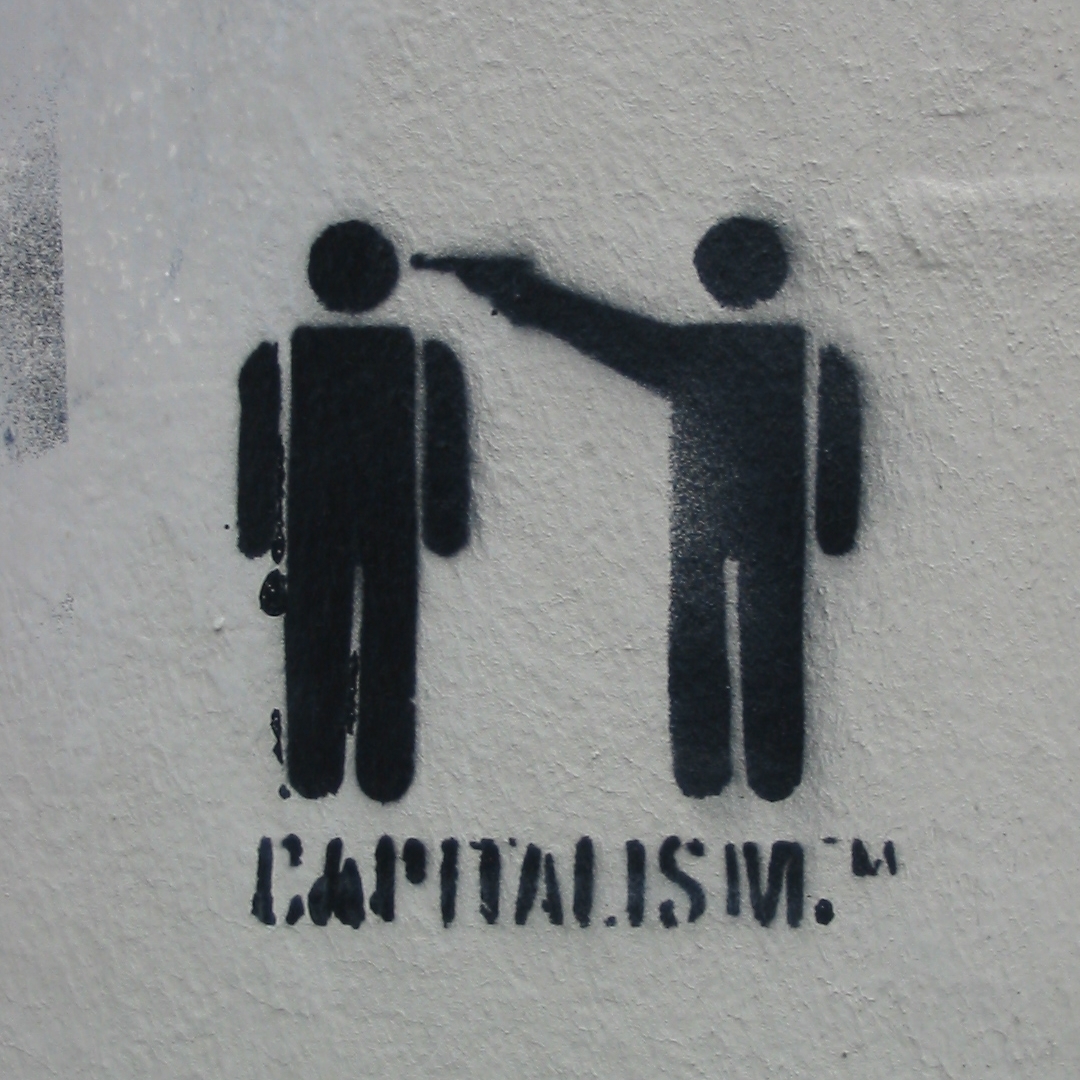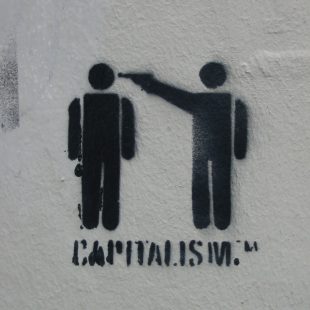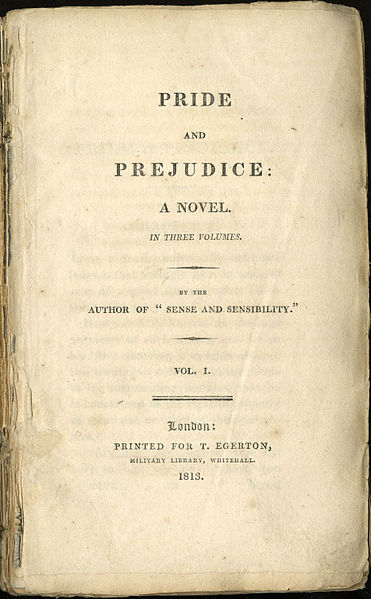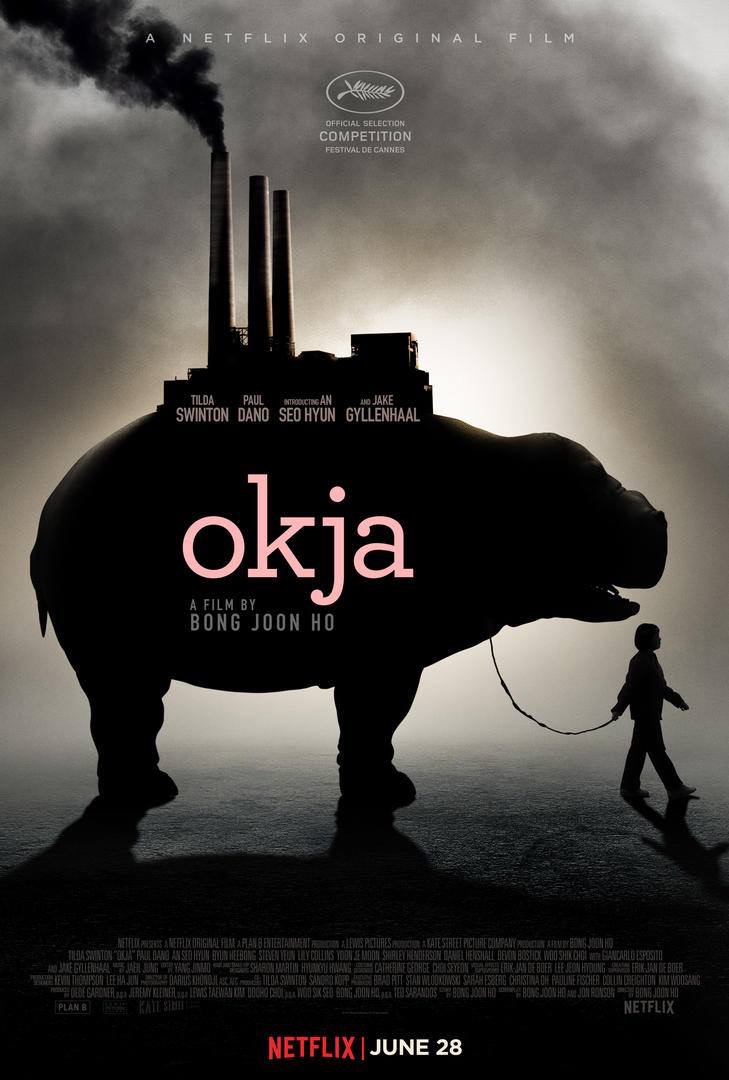
Capitalism: A Love Story
You may be a Super Bowl champion, Oscar winner, renowned writer – or even the leader of a nation. You may have discovered the panacea for all diseases, solved global warming – or even have saved the world population from an alien invasion. You may have all the respect in the world, but none of these titles automatically entitle you to actual power in today’s capitalistic society, where authority is determined by financial status. Through the years, the perception of a successful man has evolved from a highly revered individual to simply a person with “more zeros” in their bank total, making the youth question whether respect is worth achieving when it has no physical power in the real world. Unearthing capitalism’s insidious nature, Michael Moore’s film Capitalism: A Love Story shifts from the neighborhoods of the victims of capitalism, to the halls of great authority in Washington, to the very center of global finance in Manhattan. With humorous outrage, Moore delves into the question: Is capitalism worth promoting at the expense of consumers’ wealth?
Everybody instantly recognizes a Michael Moore film when they see one because of his signature style, a double-edged sword. On one hand, his distinct style of unfiltered language sets itself apart from films, while on the other hand, his unprecedented style of unfiltered language makes the audience question his intentions of promoting socialism. At the end of the film, Moore makes the pronouncement: “Capitalism is an evil, and you cannot regulate evil. You have to eliminate it and replace it with something that is good for all people and that something is democracy,”, and implies his support for socialism. However, by promoting socialism Moore is not suggesting its commonly perceived definition, tainted by extremists such as Vladimir Lenin, Joseph Stalin, and Fidel Castro: he means the pure economic system run by the community as a whole that advocates for equal participation and equal gains because “a nation will not survive morally or economically when so few have so much and so many have so little.”
Yes, Moore’s objectivity is questionable due to the propaganda-like-style in which he reprimands beneficiaries of capitalism through his narration and actions taken in the scenes. However, his condemnations of reality entail passion and persuasion that cannot be easily discredited, thus making him a filmmaker who induces thought and debate by making effective propaganda that is more than mere sensationalism.
One key characteristic of this film is that Moore, the director, appears as a first person perspective presenter by taking the lead role. By doing these actions, Moore demonstrates that he is, although a beneficiary of capitalism with estimated net worth of $50 million, a relevant figure to the story and justifies his appearance in the film. For instance, Moore visits the closed GM factory with his father who was an employee for years. Wearing a baseball cap, jacket, and jeans, Moore illustrates himself as a part of the middle and lower class. Through this means, Moore indirectly asserts his authority to take lead in the film and makes the middle and establishes himself as someone non different from the lower class and allows the viewer to trust his words.
Another key point to focus on in this film is Moore’s apt combination of black comedy and satire used to communicate with the viewer. For instance, when interviewing former employees who lost their jobs due to the subprime mortgage crisis. When discussing about the general indifference for the deterioration of capitalism, Moore simultaneously plays a video of former president Bush playing ball and riding a bicycle with a beautiful lady in the background, and narrates, “The president was enjoying his final year in office. But as the economy started to fall apart, he decided it was time to roll out the C-word.” In the following scene, Moore adds a clip of Bush claiming that “Capitalism is the best system ever devised.” Instead of criticizing Bush in a straightforward manner for his neglect, Moore purposefully juxtaposes the two videos to create a clashing effect that satirically exposes Bush’s inhumane and untruthful actions. Furthermore, when difficult to find video footages that suit his narrations, Moore wisely employs fictional clips by inserting his dramatic and satirical narrations into famous movies. An example is when he positions a scene from a movie about the Roman Empire to draw a parallel between the Roman Empire, which faced decline as a result of social class gaps, human rights violations, and irresponsibility of the emperor, and current America. These short film additions blow in a lighter atmosphere to a documentary that could possibly be heavy and boring.
Critics of Michael Moore contend that by focusing solely on the victim perspective of the case, he neglects and exaggerates the truth for a clear political objective. For instance, according to a HuffPost review on the film by Scott Mendelson, Moore “refuses to deal with the nitty-gritty … As with most Moore productions, we see various vignettes of tragedy affecting the working class of America. While these stories are meant to pull at heartstrings, it’s tough not to notice how carefully Moore avoids explaining how each family got into their current foreclosure nightmare … The filmmaker spends a good 10-15 minutes on the ghoulish practice of companies who take out life-insurance policies on their own employees.” Critics claim that while a documentary must remain impartial, Moore overly dramatizes the victims’ accounts and distorts the truth. Nevertheless, a documentary is not only a collection of neutral facts—it is also a narrative and a story. A perfectly factual and objective account does not exist. The reality portrayed in documentaries is not the truth itself, but a truth redesigned through a prism called the author’s perception. If the audience seeks absolute impartiality, they should not watch any films in the first place.
Michael Moore’s Capitalism: A Love Story reveals the inevitable truth that under the façade of democracy, modern capitalism is deforming into a plutocracy, reminding us that people are like fish. Someone approaches us and provides us with water and nourishment in the form of money, tricking us into thinking that we are saved. We grow every day, feeding on the debt generated by finance capital. But when the time comes, it drains out our water. Our grown body and debt leave us no alternative. We try our hardest to survive, but are already as good as dead. However, the piece also presents what a more hopeful future could look like. Moore’s film leaves the audience pondering the question of whether modern capitalism has driven us to abandon our true values. Perhaps if our hopes of joining the top 1% were to be ensured through hard work, capitalism would not seem such an egregious system after all; in fact, it probably would be the perfection we are searching for. Even so, in the current system of capitalism where fair play is virtually nonexistent, we might be wasting our time trying to achieve the achievable. Admittedly, society cannot suddenly abandon its practice of defining people based on money, as it reflects the unfortunate reality of our world. But if we were to slowly move towards a society that inherently upholds moral values—-if reality changes—wouldn’t the standards by which we define people also change?
By YeJi Chun, intern for The AsiaN









